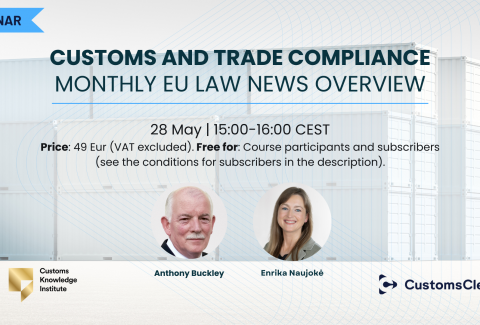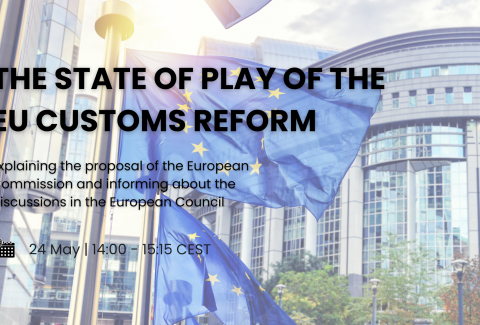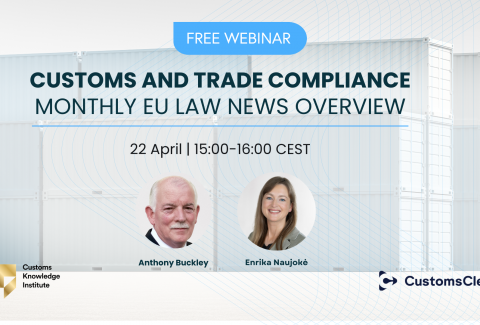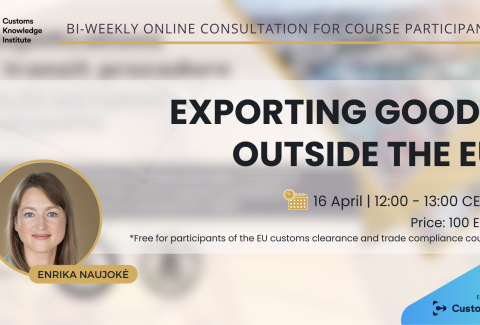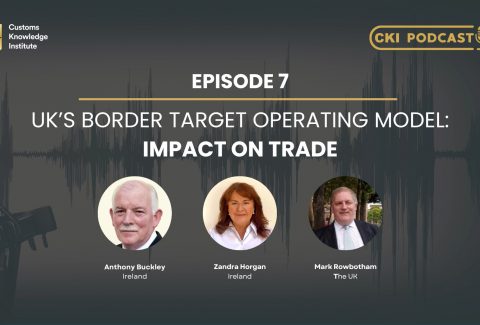CKC members share their insights on knowledge management in WCO news magazine
2023-03-14 2023-03-15 12:55CKC members share their insights on knowledge management in WCO news magazine

CKC members share their insights on knowledge management in WCO news magazine
In the latest issue of WCO news magazine our Customs Knowledge Community members Anthony Buckley and Enrika Naujokė share their knowledge with readers.
Here are introductions of the thoughts and insights from their articles about managing Customs knowledge nowadays.
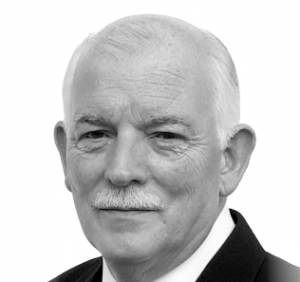
Anthony Buckley
Chair of Customs Knowledge Institute
This article argues that a formal plan for building and managing Customs knowledge is necessary for a Customs brokerage to operate effectively. The components of such a plan are discussed, as well as the determinants that may affect the choices made. The discussion refers also to general issues of Customs knowledge acquisition, management and updating. The considerations apply to all Customs practitioners and trading businesses.
The number of possible games of chess is greater than the number of atoms in the observable universe according to Claude Shannon. In Customs, there are many more variables than the 32 pieces on a chessboard. In any transaction, we have the interested parties, the type of transaction, the goods involved, the route being followed, the intended procedure, the non-tariff controls, the rates of duty and the liability for payment, each of them with many possible variations, combinations, and types of supporting evidence. On that basis, it seems that every single movement of goods across a Customs border is unique, at least in some minor way. How does a Customs broker meet the expectation of a client, who expects the broker to be familiar with every possible variation?
As if the challenge of complexity is not enough, the broker is also expected to maintain records of all transactions and retrieve them in various formats as required by customers and Customs administrations.
In practice, of course, we find ways of doing things that are theoretically impossible. Most Customs movements fall into certain categories and are handled accordingly, by operators familiar with one or a few of the categories. High value complex transactions are handled by teams with a mix of expertise, at considerable expense. Low value consignments use simplified procedures and reduced checking. Significantly, evidence suggests that many transactions proceed despite errors, sometimes of significant effect. Thus, when considering “Customs knowledge”, we must distinguish between what is necessary for all, and what is essential only for certain functions.
All economic operators must have a general understanding of what Customs is, how it controls trade, what its legal structure is, what rights, entitlements and obligations attach to the operator and to the Customs authorities, the importance of compliance with legal requirements, and the costs of non-compliance. For many who buy and sell internationally, their knowledge does not proceed far beyond this general understanding, except perhaps for some detail concerning the particular goods they trade.
For a Customs broker, this level of knowledge is only the beginning.
→ Full Anthony’s article you can read here.

Enrika Naujoke
Director of the Lithuanian Customs Practitioners Association
Customs brokers and Customs administrations share many challenges when it comes to collecting and sharing knowledge. This article introduces some of the practices used in this domain by brokers based in Lithuania.
MANAGING KNOWLEDGE IN THE SUPPLY CHAIN AND THE ROLE OF BROKERS
To ensure the smooth cross-border movement of goods, Customs professionals need to understand the specifics of the supply chains they manage and the many actors involved, have an overview of the latest developments in the trade landscape, and maintain a high level of knowledge of Customs and trade-related regulations in the countries and regions they cover.
When doing so, they are faced with many challenges. The international supply chain is a complex environment for knowledge management, as it brings together multiple private and public entities which have no ownership relationship or hierarchy between them, and have competing policies and missions as well as different resources. It is also a moving environment, where regulations and procedures change and new ones – including a growing number of non-Customs regulations – emerge on a regular basis.
In such a context, it is not hard to understand why companies often entrust their Customs and trade formalities to Customs brokers. In many countries, the latter plays a key role as intermediaries between Customs and business; for example, more than 80% of import and export declarations in Lithuania and Bulgaria are lodged by brokers. The brokers’ role is diverse. As explained in the WCO Study Report on Customs Brokers, “there is a wide range of models among countries regarding the use of Customs brokers. The function of a Customs broker also varies greatly, from the preparation of documents related to release and clearance to the payment of duties and taxes to providing assistance in post-clearance audits, to representing clients in dispute resolutions, and to providing advice/consultancy services to traders aimed at helping them to meet various regulatory requirements”.
→ Full article you can read here.
Related Posts
Proving preferential origin in EU and UK | Podcast, Episode 8
Online consultation: Customs formalities when importing goods into the EU
Customs and Trade Compliance | Monthly EU law news overview: June 2024
Online consultation: Release for free circulation in the EU
Monthly EU law news overview: May 2024
The State of Play of the EU Customs Reform
CKI and CONFIAD forge partnership with Memorandum of Cooperation
Customs and Trade Compliance | Monthly EU law news overview: April 2024
Online consultation: Exporting goods outside the EU
UK’s Border Target Operating Model: Impact on trade – Podcast, Episode 7
Search
Recent News
- Proving preferential origin in EU and UK | Podcast, Episode 8
- Online consultation: Customs formalities when importing goods into the EU
- Customs and Trade Compliance | Monthly EU law news overview: June 2024
- Online consultation: Release for free circulation in the EU
- Monthly EU law news overview: May 2024




